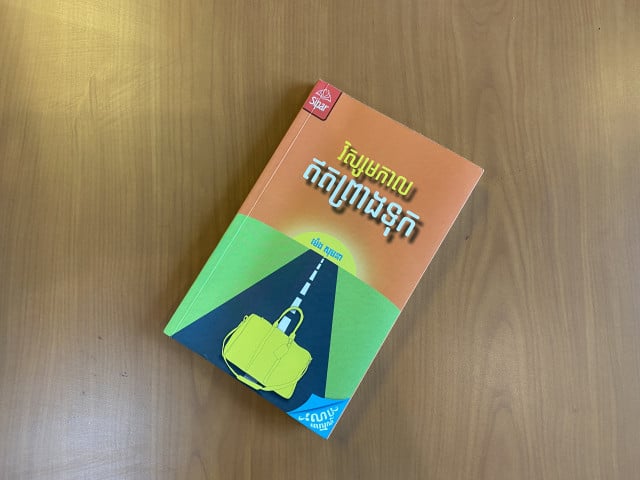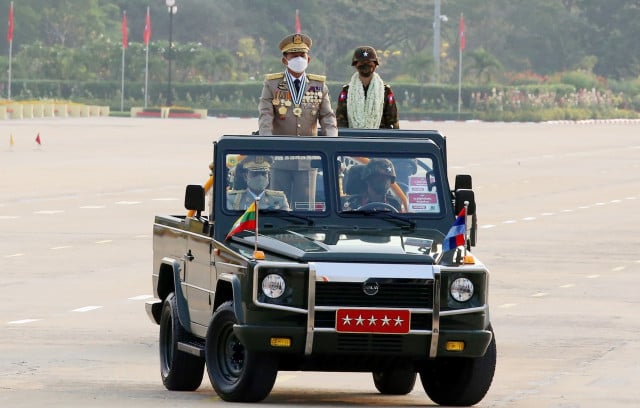EU Commissioner Pays Official Visit for Development Fund Acceleration
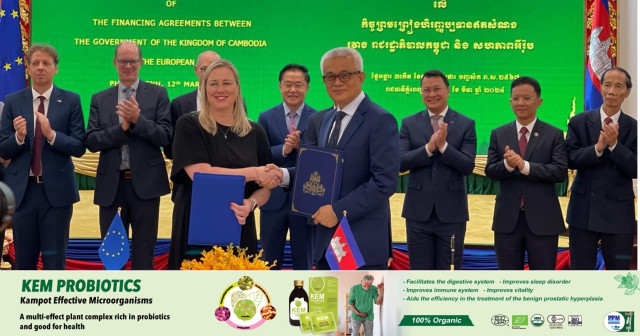
- By Teng Yalirozy
- March 12, 2024 8:10 PM
PHNOM PENH – The European Commissioner for International Partnerships Jutta Urpilainen has started off her two-day official visit to Cambodia to launch four new development programs on agriculture, sustainable energy and industry, technical education and trade. The programs are worth over $85 million.
Cambodia is Urpilainen’s first destination in Southeast Asia as the country has abundant potential for youth capacity, given that young people make up more than 65 percent of the total population, she said.
On March 12, she visited the Chumpu Vorn General and Technical High School in Phnom Penh’s district of Porsenchey, signing the Transforming Technical Education EU-Cambodia Partnership 2024-2027 program, worth $53.1 million.
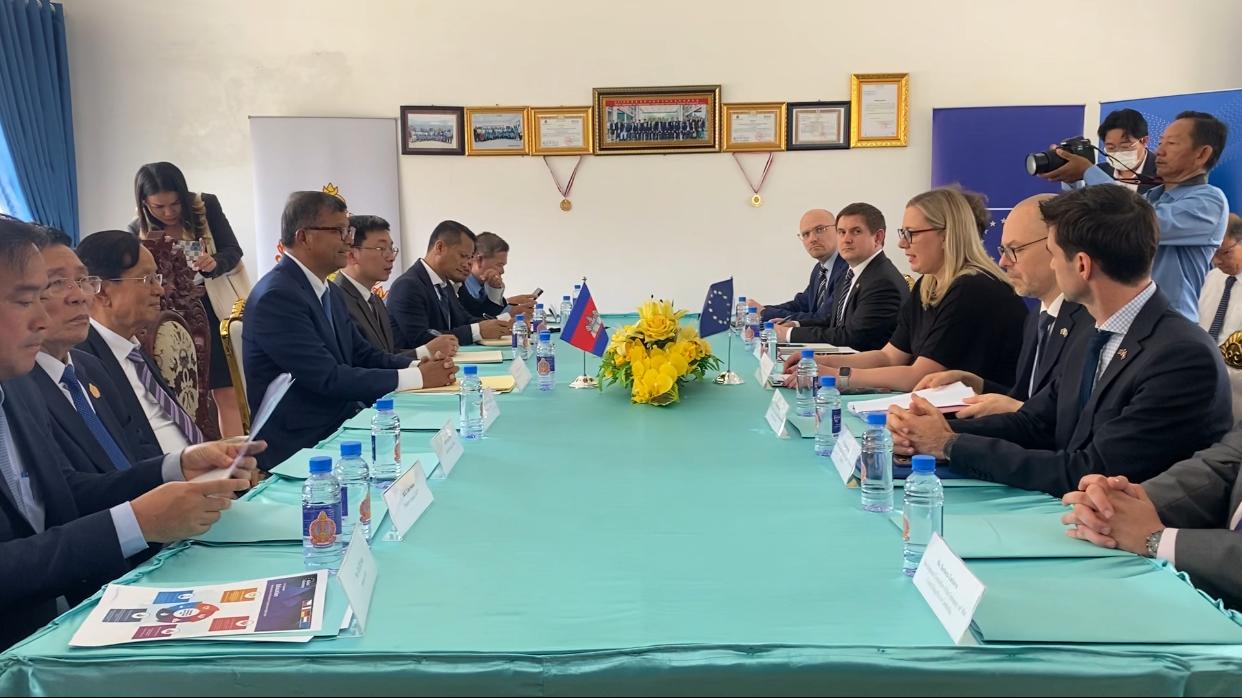
Urpilainen said the EU fund for education had increased from 7 percent to 30 percent since she took over the position in 2019. She is an education enthusiast who used to be a teacher, saying schools give her a sense of bond and home.
Touring the students’ projects at the high school, Urpilainen said she hoped that the funding will be a strong investment to help young Cambodians develop their abilities in science, technology, engineering and mathematics (also referred to by the acronym STEM), so that they can secure good jobs and achieve their dreams in the industry.
“Education is a key investment into a brighter future,” she said. “The goal of this program is to ensure that Cambodian youth remain curious, open-minded, resilient and passionate about new discoveries. I am convinced that this is the best path to ensure the sustainable development of the country.
“I always feel optimistic about the future of [the young people],” she added. “Education is the possible way to create the future and you will change the world and solve its problems with your skills.”
Education Minister Hang Chuon Naron said he was confident this fund on education will be beneficial to Cambodian students.
“I am confident that these investments in education, skills and research can also attract more European companies to offer high-quality jobs to Cambodian citizens for the green and digital development of the country,” he said.
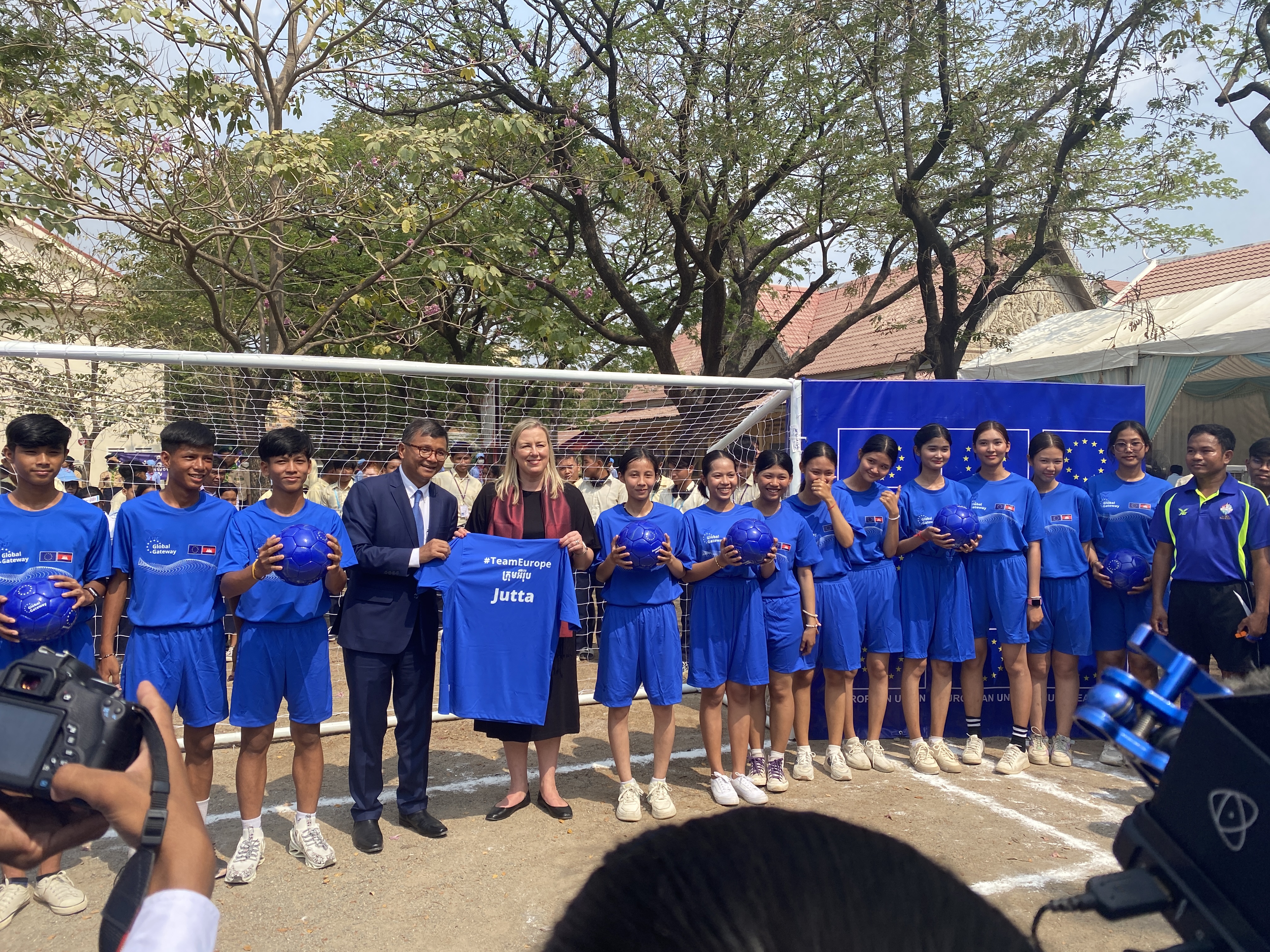
Later in the day, Urpilainen proceeded to the Ministry of Economy and Finance to sign the other three funding projects.
Those include $18.4 million to develop the agricultural and food systems (with co-financing of $7.8 million from Germany), another $6.5 million from the EU to develop sustainable energy, and a $7.6 million program for trade and the private sector (with co-financing of $3.3 million from Germany).
Urpilainen said Cambodia's development progress is critical, with the European Union committed to partnering with the country to transition to a middle-income status.
“This visit is a great opportunity for the EU and Cambodia to take stock of our longstanding cooperation while we look together towards a shared future,” she said.
On March 12 in the evening, the EU Commissioner also met with Prime Minister Hun Manet, who recalled that the Cambodian government is dedicated to improving education and training for the disadvantaged youth.
Hun Manet stressed that in November 2023, he announced that 1.5 million young people from poor and vulnerable households would be granted free technical and vocational training for the coming five years.
Since the early 1990s, the EU has been a significant development partner for Cambodia.
In 2023, Cambodia's trade value with the European Union reached $4.61 billion, a decrease of 4.9 percent from $4.85 billion the previous year.






